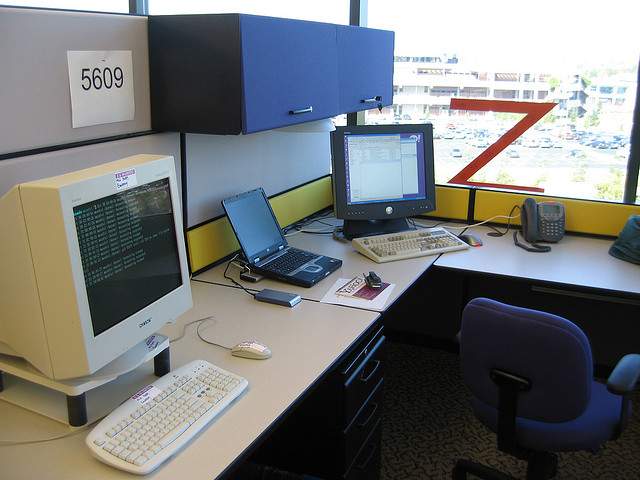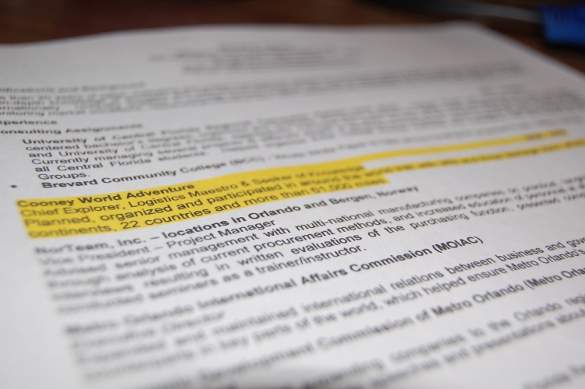Career breaks and sabbaticals have finally been gaining steam in countries like the United States, where even as recently as a decade ago they were thought of as career suicide. Organizations like Meet, Plan, Go! are at the forefront of these changes, inspiring people who think a career break couldn’t possibly work for them.
No matter what your personal situation is at this time, there is always a reason not to embark on a drastic life change like this. It’s scary, frightening, and it’s easy to make excuses. But if you have ever thought of something like a career break or sabbatical, you need to realize that there will never be a perfect time. There’s always an excuse to stay home. There’s always a reason not to go.
…you need to realize that there will never be a perfect time.
When contemplating a drastic lifestyle change like taking a career break to travel the world, people want real-life examples to help make their decision. People want to be inspired. People want to be reassured that they aren’t crazy. That’s why we went out and interviewed 20 people who threw caution to the wind and took a sabbatical to make their travel dreams come true.
But these people didn’t just leave their lives so they could experience the world. Many left to find themselves, to seek out a new purpose in life, to be inspired themselves to live the lives that they feel they are meant to live. Many of our career breakers were sick of waking up each morning to do something they weren’t passionate about. Many were fed up with the status quo. With living life the way society deemed it was supposed to be lived instead of how they really wanted to live it.
The following 20 people (many of which were part of traveling couples or families) demanded change in their lives.
By taking off to explore the world, each and every one of these people decided enough was enough. Some hated their jobs and needed a change. Some loved their jobs but simply wanted a break. Some enjoyed what they did, but they had an empty feeling, knowing that something was missing and life could be better. Others were inspired by an event in their lives that had them questioning if this was the life they really wanted to live.
Career breakers come from all walks of life.
We want everyone to see that no matter what your situation, you too can choose to change your life if you don’t feel like it’s going in the direction you’ve always dreamed. There is no blueprint for taking a sabbatical and changing your life. There is no one group of people who decide to do this. Every person’s situation is different. And as you’ll see, your lifestyle change is all about mindset. If you truly want it, you can make it happen. Just check out what the people who have been there before have to say, follow their advice, and you could be on your way to a different and exciting new life.
Reasons to take a career break

Contrary to popular belief, not all career breakers are burnt out from high-stress, long hour jobs. People take sabbaticals for a myriad of reasons, so don’t feel like you have to fall into a certain category in order to take one yourself. The only thing you really need is ambition, a love for travel, and an adventurous spirit.
Susan Pohlman took a sabbatical with her husband back in 2003-2004 after both leaving their high stress jobs in LA. “We took time off to regain a healthy balance in our relationship as a couple and within our family. People are always intrigued by our story. Somehow it gives others permission to dream and step out of paradigms that are not working for them or their family anymore.” She has since written a book about their experiences, Halfway to Each Other: How a Year in Italy Brought Our Family Home, which is on bookshelves now.
Many left to find themselves, to seek out a new purpose in life, to be inspired themselves to live the lives that they feel they are meant to live.
Reverend Susan Sparks, a former lawyer turned pastor and comedian, left her job to travel for similar reasons. “What motivated me the most was the fear of going back to a career that was the opposite of my heart. It took me a while to realize that to be happy, you have to bring all of who you are to what you do. My career as a lawyer was more like a masquerade ball than an expression of my gifts.”
Not all people are completely disenfranchised with their careers though. Angela Petitt took off for different reasons. “As an avid traveler, I wanted flexibility to see more of the world and the beauty of God’s creation. My sabbatical was more of an ‘escape to’ something verses an “escape from” something (i.e. corporate America).” Angela runs Sabbatical Escapes and has been on the panel for Meet, Plan, Go! in Austin, Texas.
Henry Biernacki also enjoyed his job before leaving on a trip shortly after college in the late 90’s. “I enjoyed each part of what I was doing, but I needed to see more of this world to understand it. I began thinking though: Why work to have a way of life, but rather be paid for my way of life?” After his initial trip, in which Henri traveled for a year on $3700US, he went back to school to obtain his pilot’s license and now flies for a living. He has also written a book about his experiences and continues to travel long-term when he can.
Jane Stanfield, who has hosted Meet, Plan, Go! in Denver, took off after a death in the family. “My career break happened after the death of my last parent. After that death, I knew I did not want to get to the end of my life wondering what if? With 20+ years of work ahead of me, I wanted to come back and work on something that I couldn’t wait to get up to do every day.” Though she enjoyed working for nonprofits before her trip, Jane has since started a new business speaking, teaching, and writing about international travel.
A sabbatical can help you do your job better

If you end up back at your old job after your career break, you may be surprised at some changes you never would have expected. From minor personality conflicts to a spike in confidence, how you handle stress and your job on a daily basis is going to be different than before your trip.
Diana Edelman worked in PR both before her trip and after, though now she is living as an expat in Thailand, runs the site The Adventures of D, and says,
“I don’t take things quite so personally anymore. I don’t let things stress me out the way they used to. When things start to bother me, I sit back, close my eyes, and recall a time during my career break where I struggled, where things seemed difficult, then I compare it to the problem at hand. Suddenly, it’s not so bad. Taking a career break . . . puts things in perspective.”
Lisa Niver Rajna, who runs We Said Go Travel, also went back to her job as a teacher after her sabbatical. She loves how her experiences translate to the classroom.
“The children are transfixed when I share stories and photos of our travels. For a lesson on measurement and balance scales, I showed photos of the market where people use scales from the floating market of Banjarmasin Kalimanta. … The lessons of travel have been marvelous for my students.”
Elaine Masters really enjoyed her job working for a radio station in Alaska, and she was able to work out a sabbatical to take her trip. Upon going back to her same job, she,
“felt so much more confidence about life, myself and people when I returned that it filtered into my work. We had many foreign visitors at the station and in the city. I now had more in common with them and could relate better. It made my work much more interesting and fulfilling.” Elaine also runs a website devoted to travel and staying healthy while doing it, called Trip Wellness.
There are some people who take sabbaticals with the intention of not going back to their old lives, but then something brings them back. Jennifer Lagrotteria was ready to leave her life behind as an event marketing director for Fortune Magazines in New York City. A fateful blind date before her trip budded into more as she was away, and she eventually found herself back in New York City after 11 months on the road.
“When I returned from the trip I was better at building partnerships and creative thinking. I often tried to create marketing packages that connected the corporate world with non-profits – which turned out be the beginning of an industry-wide trend.”
She later left that job, got married to the same guy from the blind date, and two years after her trip, finally found her true calling. “Within two years of my return I started a non-profit, Charity Begins, which taps into my passion for travel.”
Dealing with a resume gap
One of the biggest concerns people have of leaving a job to travel the world is the dreaded resume gap. It’s a valid concern, particularly in a still down economy, but nearly all of our RTW travelers were in agreement that not only is the resume gap not a big deal, but can be a positive if you spin it correctly.
With all the people out of work over the last several years, there are plenty of people with gaps in their resumes, so you might as well have experiences that make you stand out from the rest of the crowd.
“Don’t talk about your career break in a negative way, like it was a bad step for you to bow out of the workforce for a while. Talk about it like you’re proud of what you’ve done and what you learned, and shape the experience as something that will make you a better employee,” says Alexis Grant, a journalist, blogger, social media coach, and budding entrepreneur. She even wrote a piece for US News about how to deal with a gap in your resume.
Valerie McTavish and Tim Wohlber, owners of Zufall Adventures, both left jobs in the media to take their trip, and they have had no trouble with the gap in their resumes since returning to jobs in the same field. “It was simple for both of us. We said that we’d gone traveling. Most of the people who we’d talked to understood (and were even envious) of our decision. So far, it hasn’t been a black mark or even a question mark – mostly it’s been a great ice breaker.”
“Don’t sweat the return to work so much. A good employer will see the value in what you’ve done if you pitch it right. The bad employers—well you don’t want to work for them anyway! But I can’t overemphasize how much the economy matters in terms of getting the exact job you want when you return. Right now is a great time to travel because there aren’t many new jobs being created anyway. Come back in a year or two, however, and things will be brighter. Come back in three and you’ll be sitting pretty” says Tim Leffel, travel writer and owner of the Cheapest Destinations Blog.
“I added a special section to my resume called ‘Proudest Moment’ and have our bike journey to the ends of the world explained there. I feel it’s a huge benefit to others so want to make sure it’s prominent. Anybody who doesn’t want to hire me because I spent four years biking around the world is somebody I don’t want to work for anyway,” says Nancy Sathre-Vogel, a former teacher who biked from Alaska to the southern-most point of Argentina with her husband and two young sons.
Lauren Fleshler started her own company, Grow Beyond, since returning from her trip.
“In interviews I spoke openly about what drove me to travel—the desire to continually learn new things, meet new people, and challenge myself in new ways, which were qualities that I knew would be attractive to any prospective employer for the positions I was seeking.”
“I was up front on both my resume and in interviews as to how I spent my year. From my perspective, it added to the flavor of who I am. Potential employers found the idea of my RTW fascinating and therefore looked upon what I did as favorable…If you try to anticipate and plan your entire career, give it up. You can’t predict what is going to happen in the company you would be leaving, the industry you are in, etc. . . my high paying job as CFO prior to leaving – the company went out of business in December 2010 so I would have been looking for a job regardless of whether or not I had left in order to travel,” said Marty Shusterman, a CPA who traveled around the world with his wife, Iisa and their two daughters.
Rev. Susan Sparks “explained that I needed time to figure out how this career would actually work; I needed time to think, research and focus on my next move. The trip was a great asset in interviews and applications. It gave me a dimension that many other candidates did not offer.” And don’t underestimate the value of a prospective employer’s curiosity. Lisa Niver Rajna says she “got one interview just because the man wanted to hear about our trip.”
Adjusting to life and work back home

Not everything about RTW travel, career breaks, and re-entry is all puppies and rainbows though. Even if you do have a positive experience finding another job or going back to your old career, actually getting back to work and a regular life can be extremely challenging.
Mike Cooney, who hosted Meet, Plan, Go! in Orlando says after he went on a RTW trip with his wife and three teenage sons, he had quite a bit of difficulty re-adjusting. “It’s been several years since we returned and the readjustment period has not ended and never will. It’s been really difficult for my wife and me. The boys have readjusted better than the two of us. There is not a day goes by that Catrell and I don’t think about hitting the road again. We don’t expect anyone to feel sorry for us, but it’s been very difficult to get back to a ‘normal’ life.” Mike and his wife have started their own travel agency since returning from their trip.
Alexis Grant has also had some trouble during the re-entry period,
“As much as I love my work, it lacks the excitement of traveling across Africa in a bush taxi, meeting new people every day and constantly exploring new places. Long-term travel has a lot of highs and lows, and real life can seem boring in comparison. The question now for me is, how can I work that adventure into my everyday life?”
While some have struggled with getting back into a normal life again, others have taken a more laid back approach, realizing that career and money isn’t everything. “We chose to take contracts instead of being full time employees of one employer because we want to stay flexible and be in control of our own schedules. Also, we’ve been a lot more open to jobs that we never would have considered before the trip – call it being adventurous or call it a shift to focusing on experiences outside of our careers. Careers have lost some of their priority status,” says Valerie McTavish and Tim Wohlberg.
Nancy Sathre-Vogel has the same viewpoint. “I think we’ve both developed a low tolerance for doing things we aren’t passionate about. We would rather make due with less income than sell ourselves to jobs we aren’t happy in.”
Then there are others like Elaine Masters, who didn’t seem to have any problems readjusting. While she loved her break and trip, she “was happy to be home and settle into life again. I needed more purpose than wanderlust and loved my job, so it was good to be home. It was great fun sharing pictures and stories with friends. Six months was a long time to wander.”
How a sabbatical can shape a new career

A big reason why many people take a career break is to hopefully find a new passion in life. Even the people who enjoyed their previous careers seemed completely open to something new. Many were fortunate enough to find their one true love and transform that into a new career, often times managing to combine it with their wanderlust.
Tim Leffel wasn’t always a successful travel writer. He bounced around in a few different careers before taking off on his initial trip.
“I wasn’t even thinking about long-term travel until my New York girlfriend—now wife—talked me into it. After I was on the road a while and started having some success as a writer, I knew I had to find a way to make that my career eventually. This I can do the rest of my life. The other jobs, no.”
Lauren Fleshler also managed to find a new passion because of her trip.
“Last year I started my own business, Grow Beyond, to, among other things, provide career strategy services to professionals, particularly those who are looking to transition or transform their careers… What this journey did for me was reinforce the idea that it’s never a good idea to settle for the status quo. There are better things to do with your time than just keep working a job that is not fulfilling to you. More often than not something better is out there; the trick is in being brave enough to go after it.”
Iisa Shusterman was a full time mother with a part time job as an arbitrator. She changed courses after coming home from her trip with her family, writing a book called Around the World In Easy Ways, among other ventures.
“I became an author, blogger and speaker. The trip had everything to do with what I chose to do upon my return. I have always been a highly organized individual who excels at planning. Organizing and planning a one year around the world trip was the biggest and most complicated thing I had ever done. When I came back, it was clear to me that others could benefit from my experience. I never had dreams of becoming an author so I never would have written a book had I not had something important to say. It was taking the trip and the success of it that lead me to this new career.”
Henry Biernacki took the logical approach to his career change.
“Traveling allowed me to focus on things that matter and less focused things that do not matter. I returned with an idea of what I wanted to do: see more of the world. How would I be able to do this? Flying!”
Jane Stanfield also knew she was going to do something different after her trip.
“I knew before I left that my trip would change me. My work with Where Is She Heading is essentially about volunteer travel. But the core of my presentations also touch on finding an idea that makes you so excited you can’t wait to do it. That is why I named my business – so that the initials form the word WISH!“
Final words of wisdom from career breakers
A sabbatical trip will change your life. Period.
It will change your outlook on life in general, the world around you, and your view on jobs and careers. All our career breakers were affected in a profound way, and though there are many similarities in their stories, they all have their own unique stories to tell. I asked all of our career break interviewees to offer one last piece of advice, or words of wisdom, for those who were on the fence and trying to decide whether to take that leap.
“The most important thing it taught me is the importance of living. If I don’t like the situation I am in, don’t like what I am doing, it is in my power to change that, to make my life better. Nothing is permanent. Nothing says you have to stay anywhere or do anything you don’t want to do. And, that’s how I look at my life now.” – Diana Edelman
“I realized life is too short to do a job you are not completely passionate about, period. I took a long look at what it is that I really love doing and then found a career to match instead of trying to fit myself into the box of a career I sort of liked because of money, prestige, etc. When you do work you love, the money and prestige will automatically follow and you will be blissful in the meantime.” – Emily Shaules, who left her career as an attorney in Chicago to travel and build a speaking career.
“I wanted a career that was flexible and I would feel gratification, but most of all I realized that salary wasn’t as important to me as I was lead to believe. Big houses, cars, luxury items all seemed frivolous now. I am very happy biking everywhere now and cutting back.” – Anna Barr, who worked as an administrator before her trip then decided to go back to school after she returned home. She runs the site De Camille, which is a travel blog about French culture.
“What I learned mostly is to trust my intuition, to go my own way, to make a clear distinction between what is important and what isn’t and to try to become a better person, which is the road to happiness…. I started thinking in terms of what do I want my life to look like? How do I find balance? How do I find happiness, not the kind that comes and goes, but the kind that stays?” – Jochem Wijnands, who was a marketing manager for a multinational electronics company before his career break. He now owns TRVL, which is a very popular iPad publication.
“I appreciate a lot more about family, food, and friends, where before I was all about work. I wanted a better balance to my life and my wife and daughters do that for me.” – Thomas Christel, who worked in marketing and technology before traveling around Europe with his now wife, Romina Abbadina. They decided to open a B&B in Italy called La Torretta Bianca.
“Be realistic. Assume you will return to your previous job/work. If you can parlay a new job or work from your travels, as they say in Australia . . . ‘Good on ya, mate!'” – Mike Cooney
“Use your time to try out careers you are drawn to, even if you just volunteer for a day. Discover what you love and then do whatever you need to do to get into that industry when you return, even if it is only an entry-level position. Follow your bliss and you will never regret it!” – Emily Shaules
“Even if you plan to go back to your former job, keep your eye and options open. You have no idea how your short-term or long-term trip may change your thoughts and desires of where you want to focus your energies.” – Jane Stanfield
“Don’t waste this opportunity. You have been given a great gift. Use it to help figure out where you need to be in the world. If you dropped all the doubts like ‘how?’ or ‘I’m not qualified’ or ‘I could never do that’ or ‘I need more money,’ what would you most love to do? Answer that, then go after it with everything you have. Whatever you do, don’t wake up one morning after a long career in something you hate and realize that forty years are gone and you can’t get them back.” – Rev. Susan Sparks


